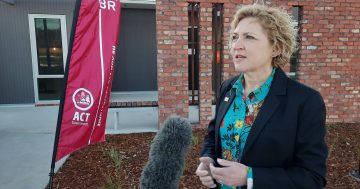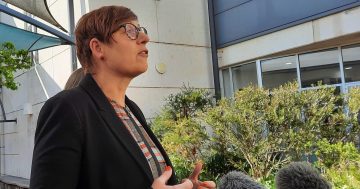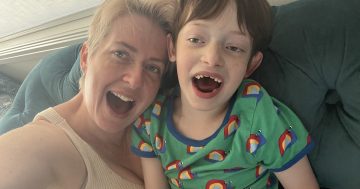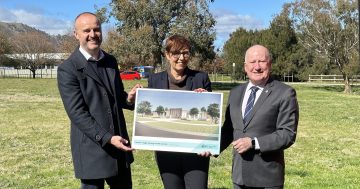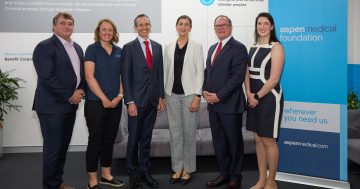
Melissa Keller-Tuberg says more support is needed for people experiencing eating disorders. Photo: Supplied.
One year after a single thought about her eating habits and body image popped into her head, Melissa Keller-Tuberg was in a hospital, in a wheelchair being fed through a tube because of a severe eating disorder.
She tried to see specialists, but the waiting lists in Canberra were longer than what it took for the disorder to hospitalise her.
When she saw GPs – three of them – as she grew more scared that something wasn’t right, she was told she wasn’t sick enough for help.
“In the first few months of me having symptoms, we went to my family GP about me crying during meals and having a lack of appetite, and the doctor said that was normal for teenage girls and prescribed me medication for stomach ulcers,” says Melissa.
“I had all these thoughts in my head about ‘do not eat this’, and a medical professional made me feel like I did not deserve help.
“So a button turned on in my head that said, ‘I will do anything to prove I need help.'”
During the COVID-19 pandemic, the Butterfly Foundation – the national charity for eating disorders – recorded an almost 60 per cent jump in calls to its helpline by August, compared to January 2020.
Calls have more than doubled in the past two years and webchats have doubled within the past year.
Help in the ACT is fragmented at best, and the cocktail of long waiting lists, a lack of accessibility to support services, and the affordability of services prevents people with eating disorders getting the help they need, says Melissa.
“For me, it was really tricky to access treatment early on because of stigma – even from within the mental health system – and an unwillingness to refer me to treatments that might have helped because I was not yet underweight,” she says.
“The thought at the time was whether I was going to go to a private practice in Sydney or Melbourne, but we decided I was better off staying with my family because they were the major support for me.
“It is not good enough that people have to choose between staying in the same city as their support network and getting specialist help.”
Melissa was lucky she had the support of her family so affordability was not a major issue, but stories have emerged of people with an eating disorder being forced to choose between a psychologist appointment or going to work or being able to buy their food for that week.
At the time, Melissa only had access to 10 Medicare-subsidised sessions, which were not enough. This has since been increased to 40, but waiting lists for specialist psychologists or public services such as Headspace can stretch for more than six months, leaving people with no choice but to find private psychologists in Sydney with shorter waiting times.
“The specialist treatment in Sydney is all private and very, very expensive so that is only going to work for a small group of people,” she says.
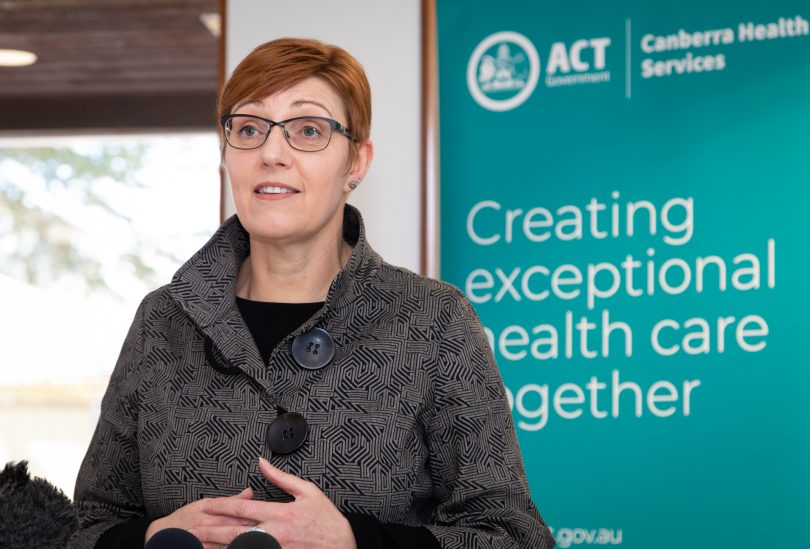
ACT Health Minister Rachel Stephen-Smith says the ACT Government is continuing to invest in services to support people experiencing eating disorders. Photo: Region Media.
In 2019, the Federal Government announced funding of $13.5 million for an eating disorder clinic that would be administered by the ACT Government, and start construction in 2021-2022. But inquiries into youth mental health in the ACT recommend expediting the centre and establishing more support services across Canberra.
A second review of children and young people who have died as a result of intentional self-harm in the ACT found “a gap in service provision at crucial periods due to issues around accessibility and follow up”.
“The inability to access the right service at the right time may have had an impact on their future willingness to engage with both formal and informal supports,” said the report.
ACT Health Minister Rachel Stephen-Smith said that expediting the current timeframe, just months out from the new financial year when the funding is scheduled, is unlikely due to the logistical challenges.
But Melissa is worried the centre is not being treated as a priority.
She maintains the help of a dedicated support hub is urgently needed in the Territory, as the period after a person is discharged from hospital often becomes their most vulnerable time when dedicated support staff are suddenly taken away from them.
“Suddenly you are out in the big world again,” says Melissa. “I was experiencing a lot of distress and it was up to my family and I to deal with that on our own.
“I think [the clinic] would have made a huge difference because having a hub where all the help you need is under one roof, we would have known where to go and the communication between all the different people would have been better.
“Ultimately, it would have meant less pressure on my family. Collectively my parents took nearly a year off work, but what about the families who are not in that position. It is a really scary thought.”
If you are concerned about an eating disorder or body image issues and need support for yourself or someone you care about, the Butterfly Foundation’s support line is available on 1800 33 4673 (1800 ED HOPE).
If you or anyone you know needs mental health support, contact Lifeline on 13 11 14 for 24-hour crisis support. In an emergency, call triple-zero (000).













